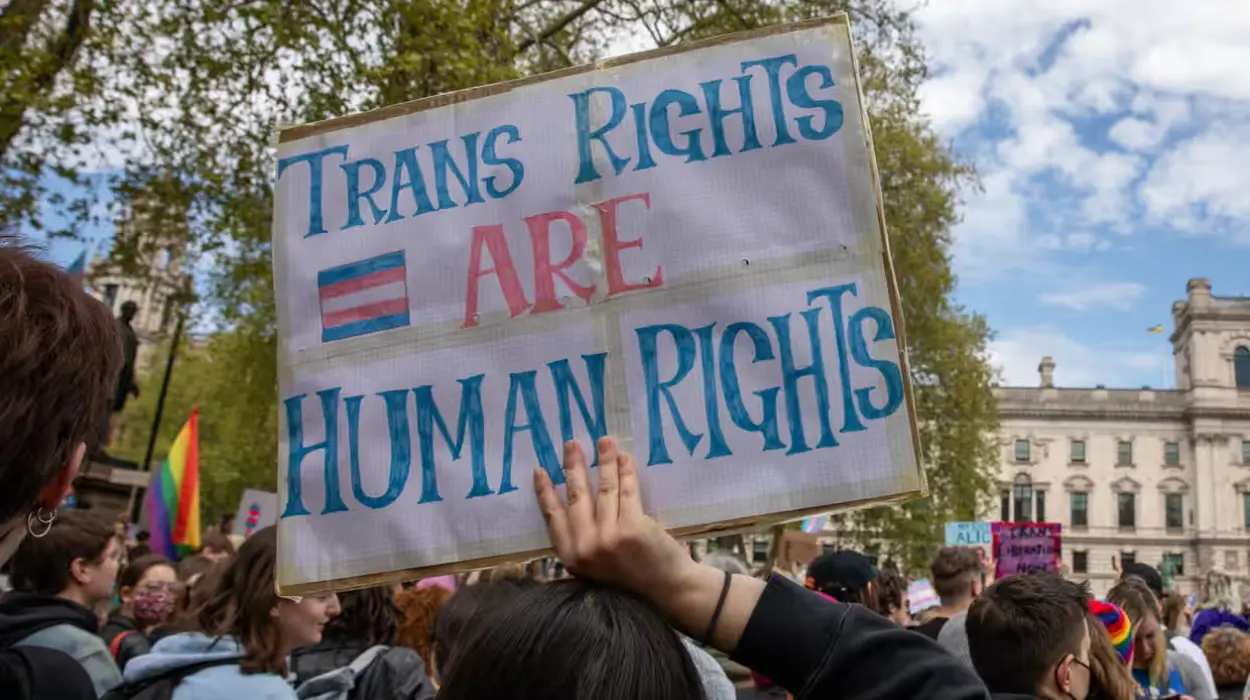UK (Parliament Politics Magazine) – LGBTQ+ groups say UK court’s “biological sex” ruling sparks legal crisis, undermining trans rights and access to gendered services.
As reported by The Guardian, in response to the Supreme Court’s landmark judgment on transgender rights, 14 leading LGBTQ+ organisations have urged Sir Keir Starmer for an urgent meeting. They cited “a genuine crisis for the rights, dignity and inclusion of trans people in the UK.”
LGBTQ+ charities’ views on the Supreme Court’s ruling on trans rights
A letter sent to the Prime Minister by Stonewall, Scottish Trans, the LGBT Consortium, and TransActual argued that the judgment had caused significant confusion. They warned of a lack of clarity on its effects on businesses, public services, and civil society, with a particular focus on the impact on trans people.
According to the letter, the judgment overturns the previous interpretation of the Equality Act, establishing
“a legal framework that simply cannot uphold the dignity, protection, and respect of trans people.”
The letter strongly criticized the interim update from the Equalities and Human Rights Commission issued last Friday. It stated that transgender individuals “should not be permitted” to use facilities based on their gender identity.
The letter argues that the decision represents “significant overreach,” conflicting with the UK’s obligations under the Human Rights Act and the European Convention on Human Rights.
What did Kishwer Falkner say to critiques of Supreme Court judgment?
Kishwer Falkner, chair of the EHRC, responded to critics in an opinion piece for House magazine, calling it “unacceptable” to challenge the integrity of the judiciary or the regulator.
Recognizing that “the public discourse on this topic continues to be polarized,” Lady Falkner urged “every legislator to read the judgment in full,” expressing concern over
“any uncertainty among duty bearers and the public that has been fueled by misunderstanding and distortion, particularly across social media.”
She described the ruling as a “model of clarity” and stressed that “the law it sets out is effective immediately,” urging those with duties under the Equality Act to follow it and seek legal advice if needed.
Ms Falkner rejected claims that trans people were being ignored, describing them as “simply incorrect.” She pointed to the commission’s plans to hold a two-week public consultation in May to evaluate how the judgment’s practical consequences can be reflected in an updated code of practice.
What legal steps is the Good Law Project taking in response to the Supreme Court’s judgment?
The nonprofit legal group Good Law Project has raised over £284,000 to challenge the Supreme Court’s ruling. It is working on about 20 legal cases, one of which is already before the courts.
It informed donors that it had brought in an expert team to interpret the court’s ruling. The nonprofit organization also intends to offer advice to the trans community on how to respond if challenged regarding access to gender-appropriate spaces.
What did the Supreme Court rule about trans women’s legal status?
On 16 April, the UK’s top court ruled in a significant judgment that, under the Equality Act, trans women do not qualify as women in legal terms.
In a unanimous decision, the five judges concluded that “woman” and “sex” apply only to biological females – a decision that could significantly affect trans women’s rights to access female-designated facilities.
What did Kemi Badenoch say about the Supreme Court ruling?
The Conservative Party leader Kemi Badenoch said,
“The era of Keir Starmer telling us women can have penises has come to an end.”
She added,
“Saying ‘trans women are women’ was never true in fact, and now isn’t true in law either. This is a victory for all of the women who faced personal abuse or lost their jobs for stating the obvious. Women are women and men are men: you cannot change your biological sex.”
What did Jane Fae say about the Supreme Court ruling?
Jane Fae, director of trans campaign group TransActual, said society will “divide more sharply into queer-friendly and queer-hostile spaces” as a result of the ruling, adding that it will “be the poorer for it”.
She stated,
“The entire trans community is devastated. Irrespective of the small print on this ruling, the intent seems clear: to exclude trans people wholesale from participating in UK society.”
Ms Fae added,
“We have come through worse before and trans people are not going away. Whatever the non-trans world throws at us, we will be back, each time, stronger than before.”

